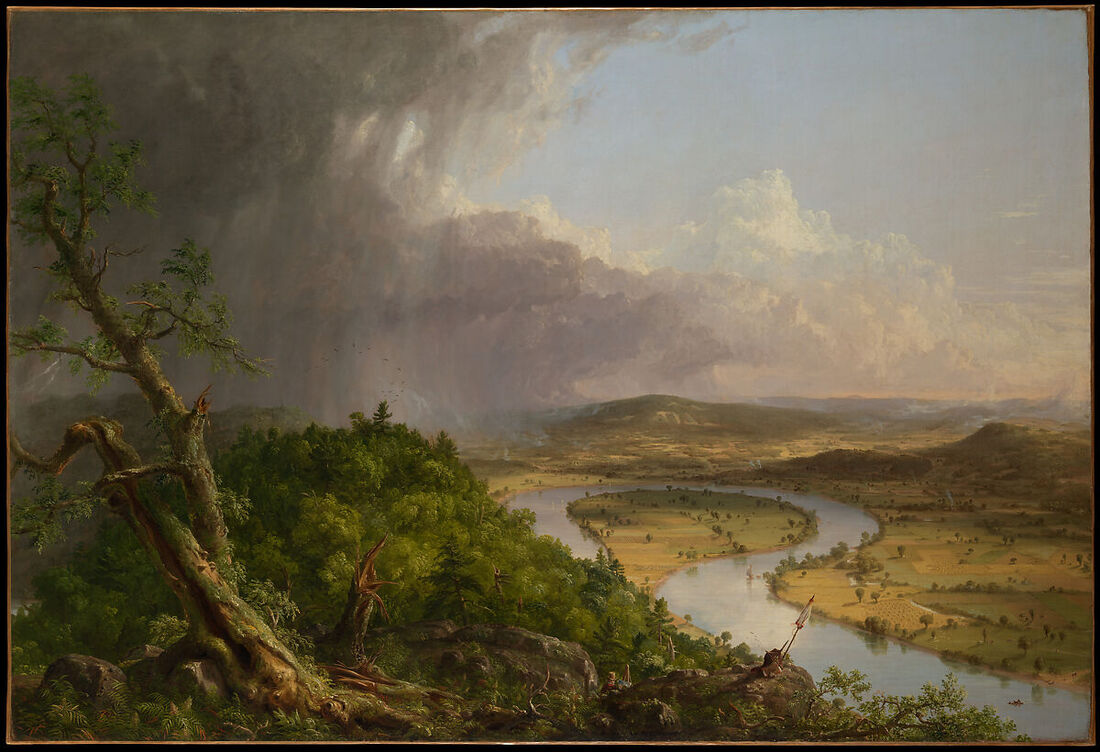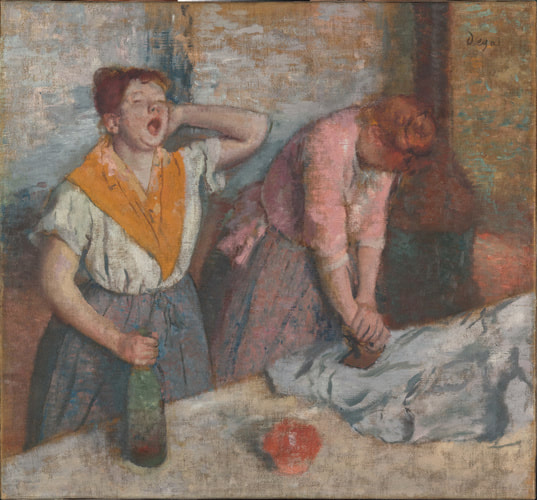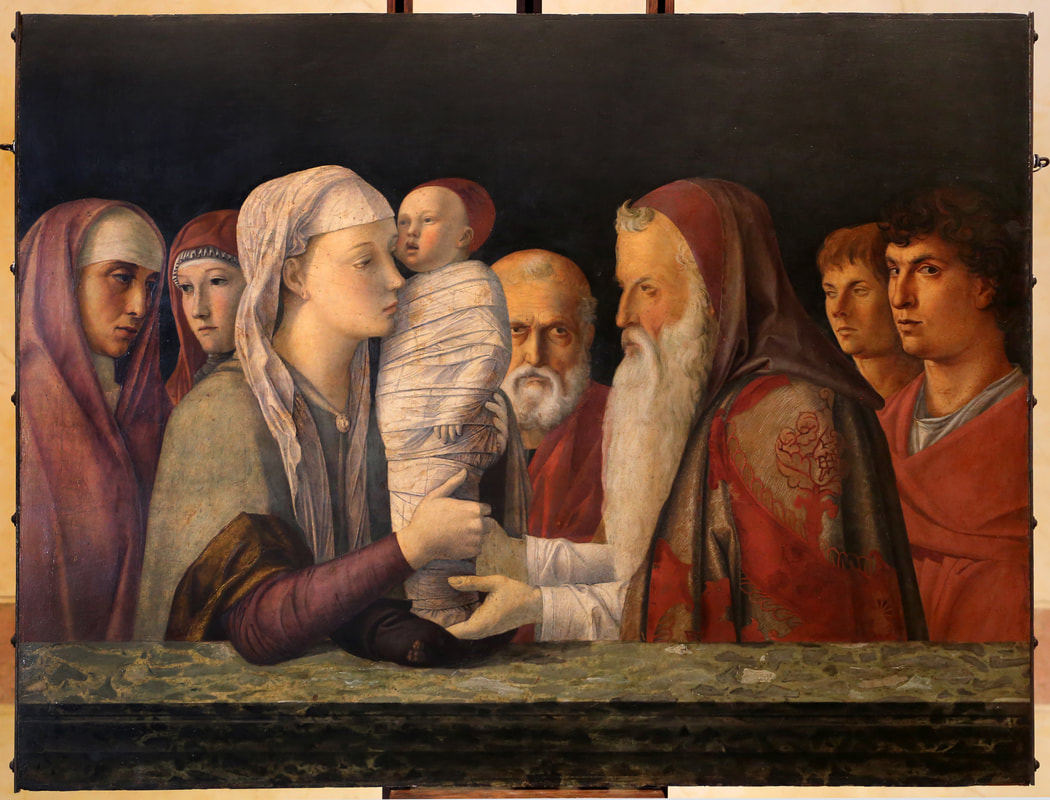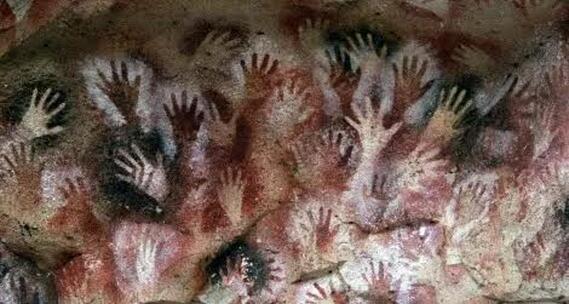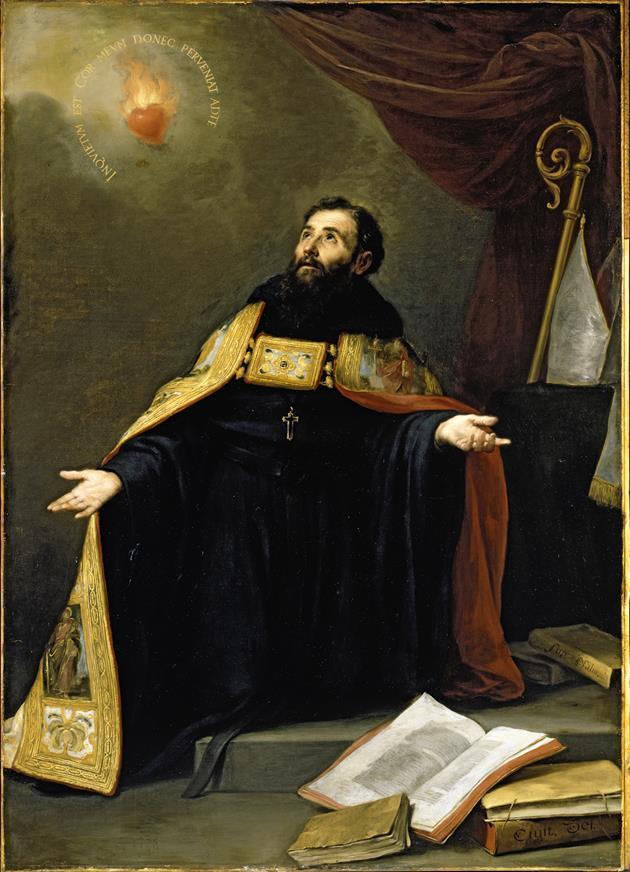|
The Artist One Saturday afternoon we hike to one of our favorite places, a round rise called Indian Hill. We like to go to the south side of the hilltop where we can see for miles across the hazy valley. The placid Smoky Hill River curls through the valley floor on its way to the Kansas, to the Mississippi. Cropland squares stretch into the distance below us. But today we don’t have the hill to ourselves. At the summit, an artist sits on a three-legged stool, his paintbox on the ground at his side. On his low easel is a painting of our valley. But where we see browns, greens, and golds, he paints purples, turquoises, and pinks. To speak would break the spell, so we watch in silence, a faint smell of paint on the prairie breeze as he works. with the artist’s strokes appears a painted landscape a new way to see S. J. Perry S. J. Perry’s work has appeared in Inlandia: A Literary Journey, The Journal of Radical Wonder, Cholla Needles, Last Leaves, and elsewhere. He grew up in Kansas, where he studied at Emporia State University and the University of Kansas. A retired high school English teacher, he has lived in Southern California’s San Gorgonio Pass since 1985.
0 Comments
Please join us online for a session on women with cameras. In this discovery workshop, we will meet and discuss a variety of women photographers from the earliest days of photography through to modern times. We will use their work to inspire us, with some brainstorming exercises to get ideas for our poetry and stories. On Zoom. Monday October 16, 2023 3 to 5 EST $35 CAD or approximately $25 USD. Woman with Cameras: an ekphrastic discovery workshop
CA$35.00
In this discovery workshop, we will meet and discuss a variety of women photographers from the earliest days of photography through to modern times. We will use their work to inspire us, with some brainstorming exercises to get ideas for our poetry and stories. On Zoom. Monday October 16, 2023 3 to 5 EST $35 CAD or approximately $25 USD. The Wonder Tree Arcs of carmine follow the hills the forest won’t be subdued no gaunt thought of November as the painter faces the washstand soapy water splashed on his whiskers hands quivering like wings of a bird that has flown too far he turns to the sputtering stove doesn’t know when grace became a tired thing he closes his eyes buttons his shirt and still the red flag waving come to the dark tree Georgian Bay These will become the famous pines the before and also the after Precambrian scraped birches gripped to the stony point dead leaves mute from a hundred years of hanging on Newfoundland Sketch Follow the glassy green stroke your heart’s joyful disorder Quidi Vidi from Portuguese the beautiful place too small for a port sheltered between the endured and the easy the old shore heaves like sudden May light on a white shed roof A Breezy Day Low clouds streak in like torpedoes the blown leery trees weathering the edge of ten thousand days storm light and bluster the world made of paper Fire Ranger Fabriqué à la main (the frame) taking his time with a story he’s probing the vale for a distant flag of burning air born in rough country it’s kind of work he let into himself a tower filled with voices of birds the landscape steep escarpé twenty years tapping his pipe as he slowly becomes the watching itself ** This poem was written after Fire Ranger, by Edwin Holgate (Canada) 1926. An image could not be found. The pictured artwork is in the same style by the artist. Sketch and Finished Work, Isles of Spruce Some say not a living thing stirs but you know better “Isles of Spruce” you could love this wavering place erased then redrawn don’t you miss the colour you couldn’t put down its freedom the way you miss a child’s green eyes her questions and what the world seemed to be worth when she asked them Kitwancool Totems As far as this old cart will take me Kitwancool totems see what the carver has done as the world rises up or lies where it falls if not for beauty everything falls I am Emily, Mister Woo* the sky I should say is a turquoise stone *Mr. Woo: Emily Carr’s famous Javanese macaque monkey and companion on her painting expeditions. The Pointers The royal blue hill of the mountain hauled up from September the hired barge two sorrels matched in stillness twenty-one men three red pointers as the luxuriant hour recedes the gold epaulettes so sure of their money as if God wanted someone to see *pointer: wooden oared boats pointed at both ends, once used on the Ottawa and other rivers. Rainbow, Lake O’Hara In the reaches of Yoho a rainbow’s arc straddles the haste of the river coming so far to be emptied Spilt over rock our blessedness cleft by the rush of the world by the root of a tree Bruce Rice This poem was long-listed in the CBC Poetry Competition, 2022. Bruce Rice is a previous Saskatchewan Poet Laureate. His most recent collection is The Vivian Poems (Radiant Press), on the life and work of street photographer, Vivian Maier. Ranging from family stories, the vanishing prairie and the North, to the Statue of Liberty, art is a presence in most of his work. Bruce lives in Regina on Treaty 4 territory and the homeland of the Métis, where he spends the summer conversing with coyotes and the trout he keeps in his brother’s dugout. The Ironers Someone has washed this canvas one too many times. Daylight is peeking through now and these washerwomen have decided to call it a night. Gently the first releases the hot iron from her red hands and her bunched shoulders ease at last beneath their bleached pink linen. It’s time to go home – 1880 is long ago and her companion completes a full-mouthed yawn and lets the bottle break from her hand. Degas lifts his head to see his angles changing and smiles, sketching again. An ochre shawl is knotted at the back as the last work is folded and they leave the chalk-filled room: two drab skirts with blouse and ochre shawl. John Claiborne Isbell John Claiborne Isbell was born in Seattle, USA and later lived in Europe and the United Kingdom, where he went to school. He has been teaching languages for some time, teaching French and German at universities in the United Kingdom and the United States. He has published various books, including a volume of poetry, Allegro, with a picture of a cello on the cover. His wife is Margarita and their son Aibek is 31. The Nightmare The cosmos weighs heavy, and the night is pale white. The feet are too timid to step; the eyes are too frightened to see. Imagination, like a captured ghost, escapes the catatonic sentinel. Dream’s drama set before a curtain of pale white. Narrow, depthless vision reveals the limits of the subconscious. The scariest reality of all is that there’s yet another hidden world. Charging in from this void comes a horse of pale white. Its billowing mane is the smoke of the flameless fire from its eyes. One dare not even try to tame this beast, conveyor of the wild within our souls. Led in by a demon, our treacherous ally. Granting what our lips dare not ask, unlocking uncommitted sins. It grins to know our dreams better than we; it grins to know it is our very self. Flung on an icy bed, your body is pale white. Your lithe arms reaching languidly, your bosom stopped at its high point. All tempting organs are in view except the hale, sinister shrine of womanhood. Innocence lacks defense when the mind is pale white. But the nightmare is mine, not yours; sleep leaves me unprepared to choose guilt-laden paradise of dreams fulfilled, or terrible abyss of loneliness. Breanna Claire Breanna Claire, who does not use a last name, is a transfeminine art historian living in Little Rock, Arkansas. Having published only staid scholarly writing under her deadname, her gender transition has brought with it a transition to creative writing. Her work has been published in x/y: a Junk Drawer of Trans Voices and The Literatus. The Presentation at the Temple The room smells of their sweat, perfume, and oils. Light stirs the dust gathered beneath his easel, The folds of her robes. Bellini has sketched her Often, and he can follow the curves of her lips, Her eyelids, without thinking about it. He Hasn’t yet chosen a model for the child Or for the high priest, but the priest’s robes Will be a red brocade and the child swaddled In linen, prepared already for his grave. For the Madonna, only a light scarf, No halos or other evidence of divinity. Her earlobe pierced, but without a ring, she’ll hold The child upright, close, and the priest’s hands Will reach across a parapet. Time stops. The witnesses will glance side to side, Cautious as prisoners awaiting execution. George Franklin George Franklin is the recipient of the 2023 W.B. Yeats Poetry Prize and the author of six poetry collections. The most recent are Remote Cities (Sheila-Na-Gig Editions, 2023) and a collaboration with Colombian poet Ximena Gómez, Conversaciones sobre agua/Conversations About Water (Katakana Editores, 2023). Recent individual publications include Another Chicago Magazine, The Decadent Review, Cultural Daily, and The Ekphrastic Review. He practices law in Miami and teaches poetry workshops in Florida prisons. A Body of Still Marble I. Bees here don’t know it’s January and 40 degrees, but still push their bodies onto mint stalks of germander, dipping the lavender petals, testing strength versus weight like lovers on an old wooden swing. But who am I to claim it’s too cold, that this is not the best time to harvest pollen, transfer from flower to another? Who am I to say they are forbidden from feeding themselves in winter, or that they shouldn’t gather the largest hoard of other lonely bees to huddle close, even if it means their honey storage will then deplete that much faster? II. Seagulls, where is the coast, the body of water you were once called to? You perch and hunt in the middle of this ancient city, this new feast of trash from the street fattening your kind after your exodus from the shoreline. I know the swift with its forked tail seems to be going nowhere. Its entire life is spent in flight, feeding, mating mid-air, collecting materials straight from the sky to cushion its nest, one tucked into an abandoned or unseen place: beneath a loose tile, inside a gap in the windowsill, under a building’s eave. III. The wingbeats of birds and bees, them slicing negative space in my mind, is fleeting compared to the stone- carved wings of the solitary angel of St. Andrea della Valle. One is raised as if longing for flight, but the other is folded behind her back as though she has accepted she will never leave that building’s top corner, never see the blue surf of the sea. Her hands, too, are solidified contradictions. The right shows her palm open and upturned but with fingertips beginning to close. The left arm rises up with the momentum of the outstretched wing, but her hand curves around some piece of her world that is now missing, or perhaps was never there. Her mate, too, was never made. Giacomo Antonio Fancelli was tasked in 1655 to carve two angels, but the first’s form was criticized so much, even by the Pope, that he resigned from the job. Said if he wants the other angel, let him do it alone. IV. The angel remains alone, head turned away from her missing half, her un- sculpted celestial twin, as her chin tilts down, away from the sun. Her right hand forever reaches out to bronze star she will never touch, and from that height, she cannot hide that she will never know the huddled warmth and rhythmic humming of a hoard of bees. Never know the sensation of perpetual flight, a lifetime of movement like the swift, enough to take seven round trips to the moon. Lacy Snapp Lacy Snapp is a teacher and woodworker in East Tennessee. She is a 2023 MFA in Writing graduate of Vermont College of Fine Arts and holds an MA in English from East Tennessee State University. She serves on the board of the Johnson City Poets Collective and as the current Chair of Programs for the Poetry Society of Tennessee. Her first chapbook, Shadows on Wood, was published in 2021 (Finishing Line Press). Her work including poetry, interviews, reviews, and nonfiction appears in Still: The Journal, Snapdragon, Tupelo Quarterly, Appalachian Places, and multiple Women of Appalachia Project anthologies, among others, and is forthcoming in About Place Journal, Cutthroat, and Appalachian Journal. Passing It On (or Genesis 5 Revisited) My mother received hers from my grandmother, who received hers from Mama Eyrole, who received hers from the Count’s illegitimate daughter, who received hers from the pretty laundress, who received hers from the 12 year old wife of a wheelwright, who received hers from one unbroken relay of mitochondrial DNA with a starting block 5,000 generations back to a line of fleet-footed daughters rooting seven branches of Europe on African savannah – Jasmine, Tara, Ursula, Helena, Katrine, Velda and Xenia – who received theirs from the great untoppled matriarch. My hand still holds their traces in faint outline – like a prehistoric palm-print of blown ochre. Claire Booker Claire Booker lives near Brighton on the south coast of England. Her poems have been set to music, filmed, displayed on Guernsey buses and Worthing Pier, published in magazines including Ambit, Magma, the Rialto and Stand. Her work has been twice nominated for Forward Best Individual Poem, and for a Pushcart. Two of her poems were performed simultaneously at six venues (in Scotland, England and Portugal) as part of The Solstice Shorts Festival. Her first collection, inspired by the South Downs National Park, is A Pocketful of Chalk and available from Arachne Press. Her pamphlets are The Bone That Sang (Indigo Dreams) and Later There Will Be Postcards (Green Bottle Press). More info at www.bookerplays.co.uk Meditation on Murillo’s Saint Augustine in Ecstasy I. I can’t think of him without thinking of Xavier and his sadness, lying on our sides in the grass, the twin freckles above his upper lip, and all the painted stones in the yard. How the hyacinth and foxglove opened their little mouths at dawn, the coins in the fountain pool ablaze; how the grasses bent their heads in praise. II. We sat between the light of two windows. On the kitchen table beside us, a book: Theology of the Body, and beside the book, his arm, gleaming with sweat. Black tea needs something sweet, he says, and I say nothing, cookie crumbs glued to my teeth. Back then, I prayed to be small enough to live inside his painted coffee cup. III. Shadow pushes everything onto the floor. Tattered books, the hem of his garment darkening, body losing form until only his bright hands, bright face remain. Cornered by the frame, a globe of flame, red-winged bird, or is it his own heart hovering above him? Augustine in paint speaks: my heart is restless. And the fiery heart hurts. Rachel Walker Rachel Walker is a poet from Maryland. She currently lives in Las Vegas, Nevada, where she is an MFA candidate at UNLV. Her work has previously appeared in The Shore, Thimble Literary Magazine, and Mud Season Review. Exploring Queer Stories Through Art and Literature, with Finnian Burnett We are excited and honoured to have special guest Finnian Burnett with us for an afternoon exploring LGBTQ+ art history and how it can inform our flash fiction (and other writing.) This workshop is for anyone! There are incredible stories to discover in the works of gay, lesbian, and transgender artists. We will take a whirlwind journey through art to look at voices that have been forgotten or ignored, and look closely at several artists. Finnian will talk about ways to make our stories inclusive, realistic, authentic, and natural with queer characters and themes. We will have some exercises to help you gather ideas, create characters, and begin some drafts. Dr. Finnian Burnett is a creative writing professor and well known flash fiction writer in British Columbia. They have taught flash fiction classes for the Crow Collective, the Wisconsin Writer's Association, Herstry, the Wine Country Writer's Festival, When Words Collide, Golden Crown Literary Society, Inkstacks for Writers, and much more. Craft, plot, and inclusivity and just a few of their specialties. Finnian's recent novella in flash is The Clothes Make the Man (Ad Hoc Fiction) and another is on the way. Their stories are constantly placing in flash fiction contests, including recently the longlist for the prestigious CBC prize, and first place at Blank Spaces Magazine. October 22, 2023 on ZOOM 4 to 6 pm EST Exploring Queer Stories Through Art and Literature, with Finnian Burnett
CA$35.00
Exploring Queer Stories Through Art and Literature, with Finnian Burnett We are excited and honoured to have special guest Finnian Burnett with us for an afternoon exploring LGBTQ+ art history and how it can inform our flash fiction (and other writing.) This workshop is for anyone! There are incredible stories to discover in the works of gay, lesbian, and transgender artists. We will take a whirlwind journey through art to look at voices that have been forgotten or ignored, and look closely at several artists. Finnian will talk about ways to make our stories inclusive, realistic, authentic, and natural with queer characters and themes. We will have some exercises to help you gather ideas, create characters, and begin some drafts. Dr. Finnian Burnett is a creative writing professor and well known flash fiction writer in British Columbia. They have taught flash fiction classes for the Crow Collective, the Wisconsin Writer's Association, Herstry, the Wine Country Writer's Festival, When Words Collide, Golden Crown Literary Society, Inkstacks for Writers, and much more. Craft, plot, and inclusivity and just a few of their specialties. Finnian's recent novella in flash is The Clothes Make the Man (Ad Hoc Fiction) and another is on the way. Their stories are constantly placing in flash fiction contests, including recently the longlist for the prestigious CBC prize, and first place at Blank Spaces Magazine. October 22, 2023 on ZOOM 4 to 6 pm EST |
The Ekphrastic Review
COOKIES/PRIVACY
This site uses cookies to deliver your best navigation experience this time and next. Continuing here means you consent to cookies. Thank you. Join us on Facebook:
Tickled Pink Contest
May 2024
|
